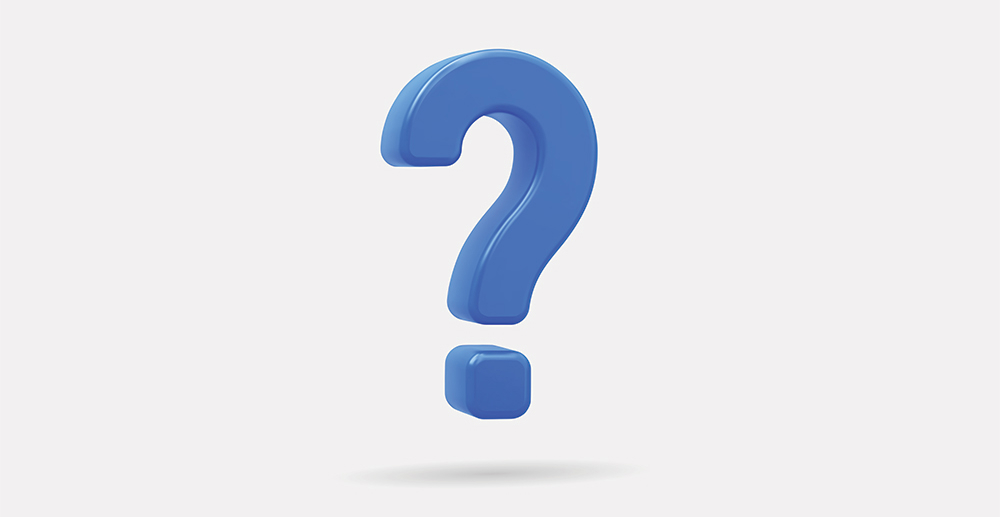Yes, I’ve had a “successful” career and, yes, I still have ADHD.
Growing up, I was a “gifted” kid. For a long time, the gifted identity masked my ADHD. The adults around me suggested that I was inattentive, easily distracted, quiet, and dazed off in class because I wasn’t being challenged enough. I was the world’s biggest procrastinator—I convinced myself and those around me that I did my best work when I was on a time crunch under the pressure of a rapidly approaching deadline. Sure, I’d sometimes make silly mistakes and I didn’t have the best attention to detail, but hey, the basis of my work was great!
I wasn’t as “rambunctious” or “troublesome” as the boys that my family, teachers, and community knew who had ADHD. I was, however, emotional, extremely sensitive to rejection (rejection-sensitive dysphoria), and often overreacted to small things. Making a decision was the hardest thing in the world. Have you ever walked into a Michael’s craft store or JoAnn Fabric and CRIED because you were so overstimulated and overwhelmed? I have!
Coming from a Puerto Rican background, there was (and still is) such a cultural stigma about mental health, so we just didn’t talk about what was going on with me. For a long time, I fell into the ADHD diagnosis gender gap, where men are more likely to be diagnosed than women, because girls often present their hyperactivity differently than boys do. I masked my symptoms by staying quiet and isolating myself when I could to avoid disrespecting the adults in my life. My anxiety developed as a way to protect myself from my ADHD.
One day, a teacher finally connected the dots and I was diagnosed with ADHD-combined type (a combination of inattentive and hyperactive/impulsive types). Just having a diagnosis was helpful—I felt seen. But while that was definitely a step in the right direction, knowing wasn’t the same as treating.
Recognizing ADHD can start with knowing some of the symptoms
For a long time, ADHD was seen as a kid’s disorder … more specifically, as a boy’s disorder. Until the release of the Diagnostic and Statistic Manual of Mental Disorders Fifth Edition in 2013 (the DSM-5, a.k.a. the mental health guidebook), ADHD in adults wasn’t even officially identified! So I always thought moving into adulthood would make my ADHD “go away.” However, according to the National Comorbidity Survey Replication, 8.1% of adults in the U.S. between the ages of 18-44 have a lifetime prevalence of ADHD.
As an adult, some of the symptoms I experienced (and still do) include:
- Difficulty with task switching (the ability to go from one task to the next)
- Working memory and forgetfulness. 9 times out of 10, I forget what we were just talking about, and it takes a good moment to get back on track
- Trouble organizing my tasks and day, which causes me to procrastinate
- Time blindness—not having a good sense of time passing by and/or underestimating how long a task should take
- Difficulty making decisions
- Becoming overstimulated in a loud and/or cluttered environments
- Being easily distracted and sidetracked at work
- Slower auditory processing speeds, causing me to often miss what others said in a conversation
- Often losing things. I’ve used the ping feature from my watch so much, my husband claims to hear it in his sleep
- Restlessness, having to go on quick walks/paces around my house to get the energy out
- Extremely fidgety, often repositioning myself in my work chair
- Excessive wordiness, sometimes “word vomit”
- Trouble waiting my turn in a conversation and talking over others
Admitting to myself that avoidance isn’t treatment
Even with all of these symptoms, I didn’t want to take medication at that time. I didn’t want to apply for accommodations in school, because I was embarrassed about what my peers would say. I thought having safeguards in place would make others think I wasn’t worthy to be there.
Instead, I overbooked and overextended myself to trick myself into getting things done. In my mind, if everything was a deadline crunch, then I could finish it all! To be honest, I got a rush, a dopamine kick, from completing a deadline in this high-stress arrangement. In my last two years of college, I was a full-time student, worked two jobs (one of which was a research position), did contract work for a data entry position, was a teaching assistant, participated in multiple clubs, volunteered, and managed a long-distance relationship. During my Master’s in Public Health program, I was always behind on readings and couldn’t keep up. I worked full-time and was a full-time graduate student, yet again, to force myself to be successful.
To those around me, I appeared to be a superwoman, but I knew I was exhausted, burnt out, and had anxiety that was through the roof. My anxiety and ADHD became cyclical—I’d have trouble focusing and completing my goals because of my untreated ADHD, which would make me anxious, and my anxiety would, in turn, make it harder to focus.
Unfortunately, this pattern continued when I began my Physician Assistant program. PA school is notoriously intense and stressful. The need to prove my worth, to prove I belonged in the group of carefully-selected individuals, reared its head once more. As you can imagine, I returned to my trusty, negative coping strategies … but this time I could see them starting to unravel. I couldn’t focus in class, so I often needed to go home and listen to all that day’s lectures three to four times (at double speed!). I’d force myself to handwrite all my notes to process them better, adding on hours and hours of extra work. I fell behind on my textbook reading assignments, so I would need to put in even more hours to catch up to my peers. Ultimately, I kept lying to myself to avoid the truth that not getting the help I needed was hurting me.
In late 2019, I finally burnt myself out so much that I cried in the bathroom during one of my clinical rotations during my lunch hour (yes, the entire hour). Clinical rotations, a time that was supposed to be such an exciting milestone for PA students—you’re finally out of that classroom and actively seeing patients!—became miserable because my coping mechanisms weren’t working. I needed to be there, be present, and be focused while seeing patients with my preceptors all day long to make sure we gave them the care they needed and deserved. Crying in that bathroom, I knew I couldn’t do it anymore. When I got home, I spoke with my partner and had the conversation about getting the help I needed. I was worthy of getting the help I needed. I started seeing a psychiatrist soon after.
My ADHD is Part of Me
Starting ADHD medication was not the solution by itself. For me, I needed a combination of medication, therapy, and coaching. Properly treating my ADHD has also improved my anxiety. Having a real work-life balance is now attainable and comfortable for me.
Having ADHD is not all bad, though, especially when it’s appropriately identified, diagnosed, and treated. I am innovative. When I’m passionate about something, I give 110%. I am resilient. My friends think I’m witty and fun to talk to because I can easily bring in new conversational topics. I am creative, with an imagination that makes hanging out with me during Halloween season very fun. When seeing my patients, they find me empathetic, their best advocate, and their cheerleader—I easily relate to how scary and frustrating it can be to manage your mental health.
I would not be me without my ADHD, and I fully accept myself for who I am. I’m worthy to be here. If you’ve ever felt the same as I did earlier in this blog post, then I hope you know that you are worthy, too.









